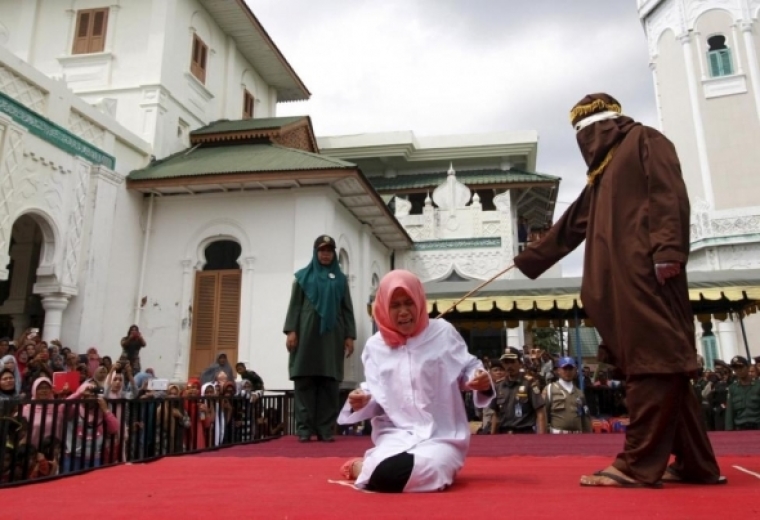
The power of history
History is a powerful tool. On the one hand, it informs and educates us. Through it we can come to know the story of human civilisation, its heroes and villains, its triumphs and tragedies.
From its study we can more fully understand our present age and how we got to where we are. We can learn lessons from those who have gone before us, and gain wisdom to help us prepare for the future.
But more than just an educational tool, history has the power to connect us to those who have gone before us, and give us a window into the culture and people of civilisations separated from us by hundreds or thousands of years.
It is for this reason that we so dearly treasure the physical artifacts that remain with us from these ancient civilisations. In many cases, the buildings, tombs, pictures and chattels that we possess of these ancient civilisations are all that we have left to remember them by.
Palmyra
As a student of history then, it pains me to be a witness to one of the most callous, selfish, and close-minded campaigns of destruction going on in the world today.
I am of course speaking of ISIS, and their ongoing mission to rid the world of anything which is not Islamic – whether they be people, places, or even ideas.
Recently ISIS have made international headlines again for their systematic destruction of the ancient ruins of Palmyra in modern Syria.
An ancient city founded by local Arabs and Arameans, Palmyra thrived under the rule of both the Seleucid Greek Empire and also the Roman Empire. At its zenith, it broke away from Roman rule and formed the short-lived but powerful Palmyran Empire during the 3rd century AD.
Palmyra gained its wealth and power as a trade hub, ideally situated between the Roman and Persian Empires, and provided a vital link between the East and the West. The first major flowering of Arab culture, Palmyra was famous for its cosmopolitan nature, attracting immigrants from far and wide and adopting many of the best aspects of Greek, Roman, and Persian culture.
Much of what was left is now gone, with ISIS soldiers having used explosives to blow up many of the remaining buildings, some of which were at least 2000 years old. 81 year-old Khaled al-Asad, who had been the Head of Antiquities at Palmyra for over 40 years, was captured and decapitated after trying to hide a number of ancient artifacts before the ISIS militants arrived.
The jahiliyya
So what is it that leads these people to seek out and destroy these priceless remnants of antiquity – of their own Arabic heritage no less? The answer lies in the concept of Jahiliyya.
The Jahiliyya is an Islamic term for the time before the establishment of Islam in Arabia. Coming out of the Arabic word jahala (which means ignorance/stupidity), the Jahiliyya refers to a time of ignorance and idolatry that existed before the revelation of God was given to the prophet Muhammad.
While the establishment of Islam in regions like Syria may have brought an ending to the period of the Jahiliyya, places like the ruin of Palmyra still give us a window into the world of the Middle East, before its people and culture were forever changed by the Qu'ran.
In a fundamentalist state such as ISIS, the very existence of these places is deemed to be an affront to Islam and cannot be tolerated to exist. Not only that this kind of behaviour is exclusive to ISIS of course. In 2001 the Taliban destroyed the 6th century statues of the Buddhas of Bamiyan, while in Mali in recent times the ancient city of Timbuktu has been attacked for the same reasons.
For all the theological rhetoric justifying the destruction of these ancient sites, it seems clear to me that it is not just strength of conviction or principle that motivates these men to destroy.
Rather, as in all other areas of society ISIS has attempted to eliminate any dissent or opposition to their interpretation of the world, so too do they view history in the same way. The culture and religion of Palmyra has long been obsolete, yet despite this, its very existence presents an affront to ISIS and a remembrance of the Jahiliyya.
History and the Christian
The actions of ISIS in this context, remind us why history is such an important thing for us as Christians to remember. Christianity is a faith which is heavily grounded in history. The reason we believe many of the things about our faith, is because they were observed to have taken place in history and have been verified as such.
The story of the Jewish people and its prophets in the Old Testament, through to the acts of the Apostles and the life, death, and resurrection of Jesus Christ in the New Testament, are all events which appeal to history.
Unlike ISIS, Christians should not be afraid of history. Diligently studied, history reveals the truth about our past and the reality of our human nature.
Research, criticism, and debate are surely things to be valued, as they expose ignorance and falsehood and illuminate the truth. If we truly believe our faith, and the books that we claim are the inspired word of God, we have nothing to fear, but rather much to gain, from the study of the past.

Tim Newman lives in Nelson, New Zealand. He holds an MA in History from Canterbury University in Christchurch. Tim is an award winning Christian Today writer and is a career journalist. Tim has given permission for his award winning history articles to be republished.
Tim Newman's previous articles may be viewed at http://www.pressserviceinternational.org/tim-newman.html